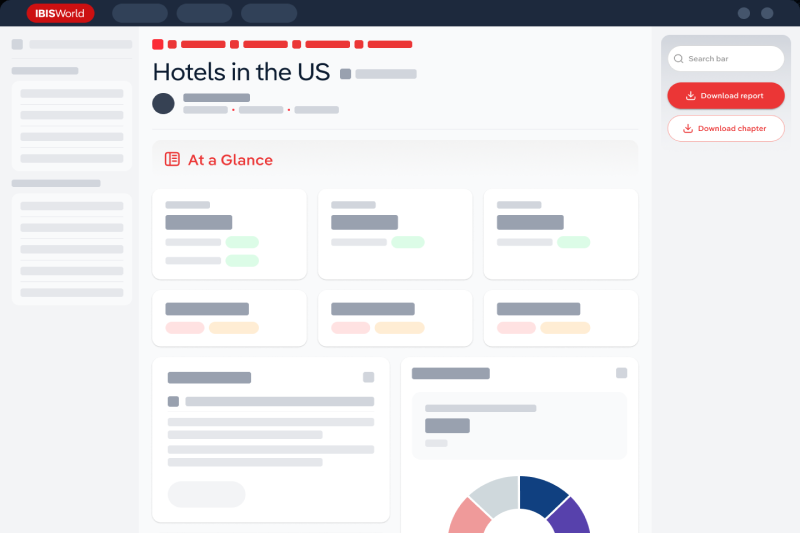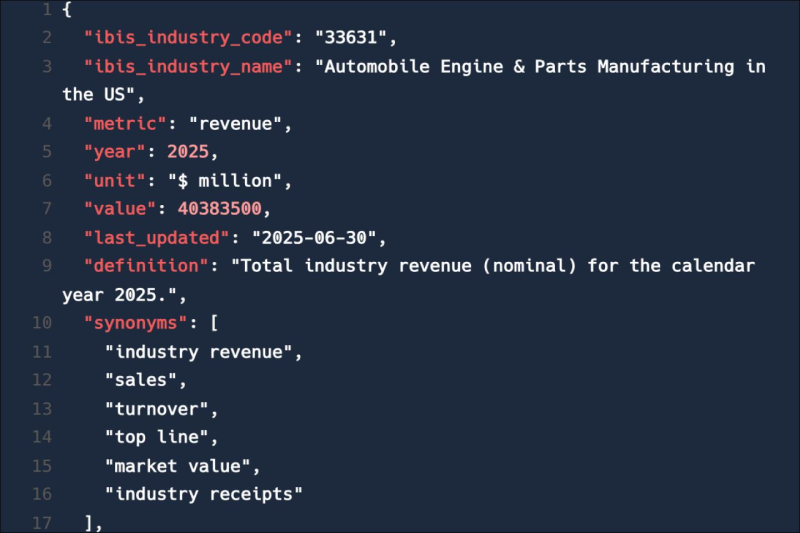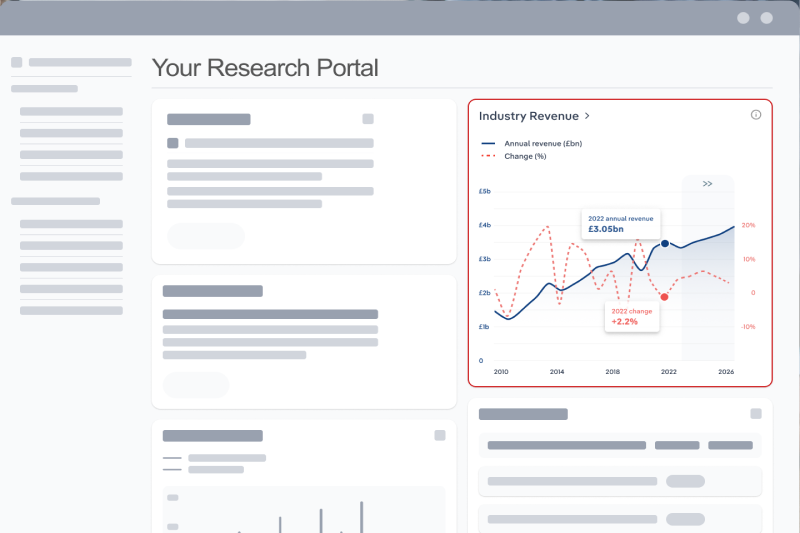IBISWorld Platform
Answer any industry question in minutes with our entire database at your fingertips.

Revenue prospects for the Lifting and Handling Equipment Manufacturing industry largely depend on the performance of downstream manufacturing, freight-handling and construction industries and their business expenditure levels. Similarly, large-scale manufacturers with multiple production facilities across Europe rely on a substantial share of export revenue to drive sales, with exports representing around 70% of industry revenue. Growing demand for warehouse and storage propelled revenue growth in the lead-up to the pandemic, while weak business sentiment during hindered revenue growth somewhat.

Answer any industry question in minutes with our entire database at your fingertips.

Feed trusted, human-driven industry intelligence straight into your platform.

Streamline your workflow with IBISWorld’s intelligence built into your toolkit.
IBISWorld's research coverage on the Lifting & Handling Equipment Manufacturing industry in Germany includes market sizing, forecasting, data and analysis from 2015-2030. The most recent publication was released April 2025.
The Lifting & Handling Equipment Manufacturing industry in Germany operates under the WZ industry code DE-C2816. Companies in the industry manufacture lifting and handling equipment, including hand-operated or power-driven lifting, handling, loading or unloading machinery. The production of conveyors, lifts, escalators, moving walkways and specialised parts for lifting and handling equipment is also part of the industry. Related terms covered in the Lifting & Handling Equipment Manufacturing industry in Germany include crane, lifting gear and winch.
Products and services covered in Lifting & Handling Equipment Manufacturing industry in Germany include Industrial trucks , Crane systems and Lifting systems .
Companies covered in the Lifting & Handling Equipment Manufacturing industry in Germany include Toyota Material Handling Europe AB, Kion Group AG and Liebherr-International AG.
The Performance chapter covers detailed analysis, datasets, detailed current performance, sources of volatility and an outlook with forecasts for the Lifting & Handling Equipment Manufacturing industry in Germany.
Questions answered in this chapter include what's driving current industry performance, what influences industry volatility, how do successful businesses overcome volatility, what's driving the industry outlook. This analysis is supported with data and statistics on industry revenues, costs, profits, businesses and employees.
The Products and Markets chapter covers detailed product and service segmentation, analysis of major markets and international trade data for the for the Lifting & Handling Equipment Manufacturing industry in Germany.
Questions answered in this chapter include how are the industry's products and services performing, what are innovations in industry products and services, what products or services do successful businesses offer and what's influencing demand from the industry's markets. This includes data and statistics on industry revenues by product and service segmentation and major markets.
The Geographic Breakdown chapter covers detailed analysis and datasets on regional performance of the Lifting & Handling Equipment Manufacturing industry in Germany.
Questions answered in this chapter include where are industry businesses located and how do businesses use location to their advantage. This includes data and statistics on industry revenues by location.
The Competitive Forces chapter covers the concentration, barriers to entry and supplier and buyer profiles in the Lifting & Handling Equipment Manufacturing industry in Germany. This includes data and statistics on industry market share concentration, barriers to entry, substitute products and buyer & supplier power.
Questions answered in this chapter include what impacts the industry's market share concentration, how do successful businesses handle concentration, what challenges do potential industry entrants face, how can potential entrants overcome barriers to entry, what are substitutes for industry services, how do successful businesses compete with substitutes and what power do buyers and suppliers have over the industry and how do successful businesses manage buyer & supplier power.
The Companies chapter covers Key Takeaways, Market Share and Companies in the Lifting & Handling Equipment Manufacturing industry in Germany. This includes data and analysis on companies operating in the industry that hold a market share greater than 5%.
Questions answered in this chapter include what companies have a meaningful market share and how each company is performing.
The External Environment chapter covers Key Takeaways, External Drivers, Regulation & Policy and Assistance in the Lifting & Handling Equipment Manufacturing industry in Germany. This includes data and statistics on factors impacting industry revenue such as economic indicators, regulation, policy and assistance programs.
Questions answered in this chapter include what demographic and macroeconomic factors impact the industry, what regulations impact the industry, what assistance is available to this industry.
The Financial Benchmarks chapter covers Key Takeaways, Cost Structure, Financial Ratios, Valuation Multiples and Key Ratios in the Lifting & Handling Equipment Manufacturing industry in Germany. This includes financial data and statistics on industry performance including key cost inputs, profitability, key financial ratios and enterprise value multiples.
Questions answered in this chapter include what trends impact industry costs and how financial ratios have changed overtime.
The Industry Data chapter includes 10 years of historical data with 5 years of forecast data covering statistics like revenue, industry value add, establishments, enterprises, employment and wages in the Lifting & Handling Equipment Manufacturing industry in Germany.
More than 6,000 businesses use IBISWorld to shape local and global economies
We were able to supplement our reports with IBISWorld’s information from both a qualitative and quantitative standpoint. All of our reporting now features some level of IBISWorld integration.

IBISWorld delivers the crisp business knowledge we need to drive our business. Whether it be serving up our major clients, winning new business or educating on industry issues, IBISWorld brings real value.

IBISWorld has revolutionised business information — which has proved commercially invaluable to exporters, investors and public policy professionals in Australia and overseas.

When you’re able to speak to clients and be knowledgeable about what they do and the state that they operate in, they’re going to trust you a lot more.

The market size of the Lifting & Handling Equipment Manufacturing industry in Germany is €XX.Xbn in 2026.
There are 8,738 businesses in the Lifting & Handling Equipment Manufacturing industry in Germany, which has declined at a CAGR of 2.0 % between 2020 and 2025.
The market size of the Lifting & Handling Equipment Manufacturing industry in Germany has been stable at a CAGR of XX.X% between 2020 and 2025.
Industrial trucks and Crane systems are part of the Lifting & Handling Equipment Manufacturing industry in Germany.
The level of competition is moderate and steady in the Lifting & Handling Equipment Manufacturing industry in Germany.




